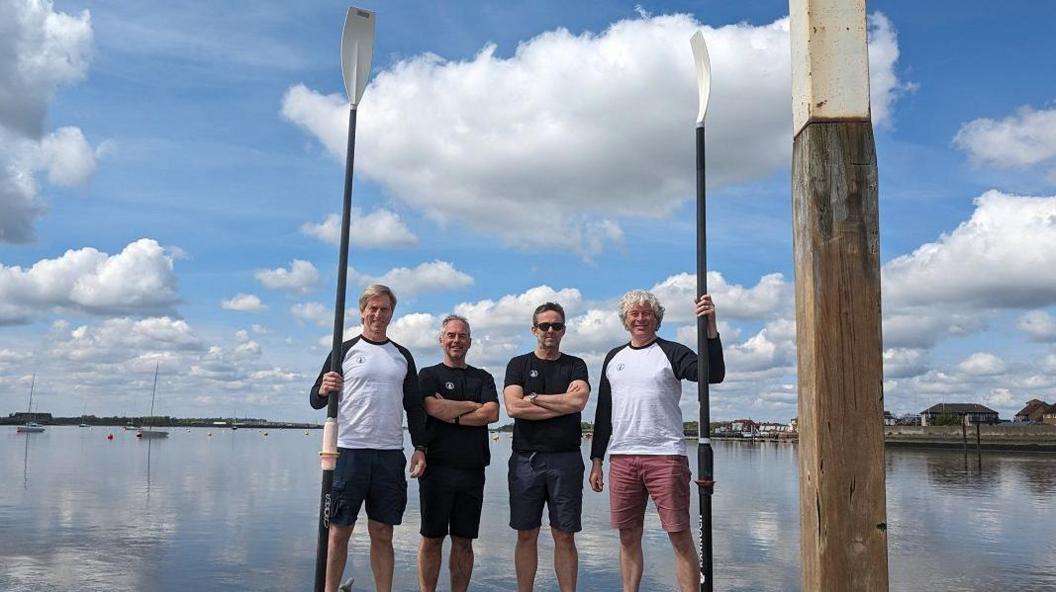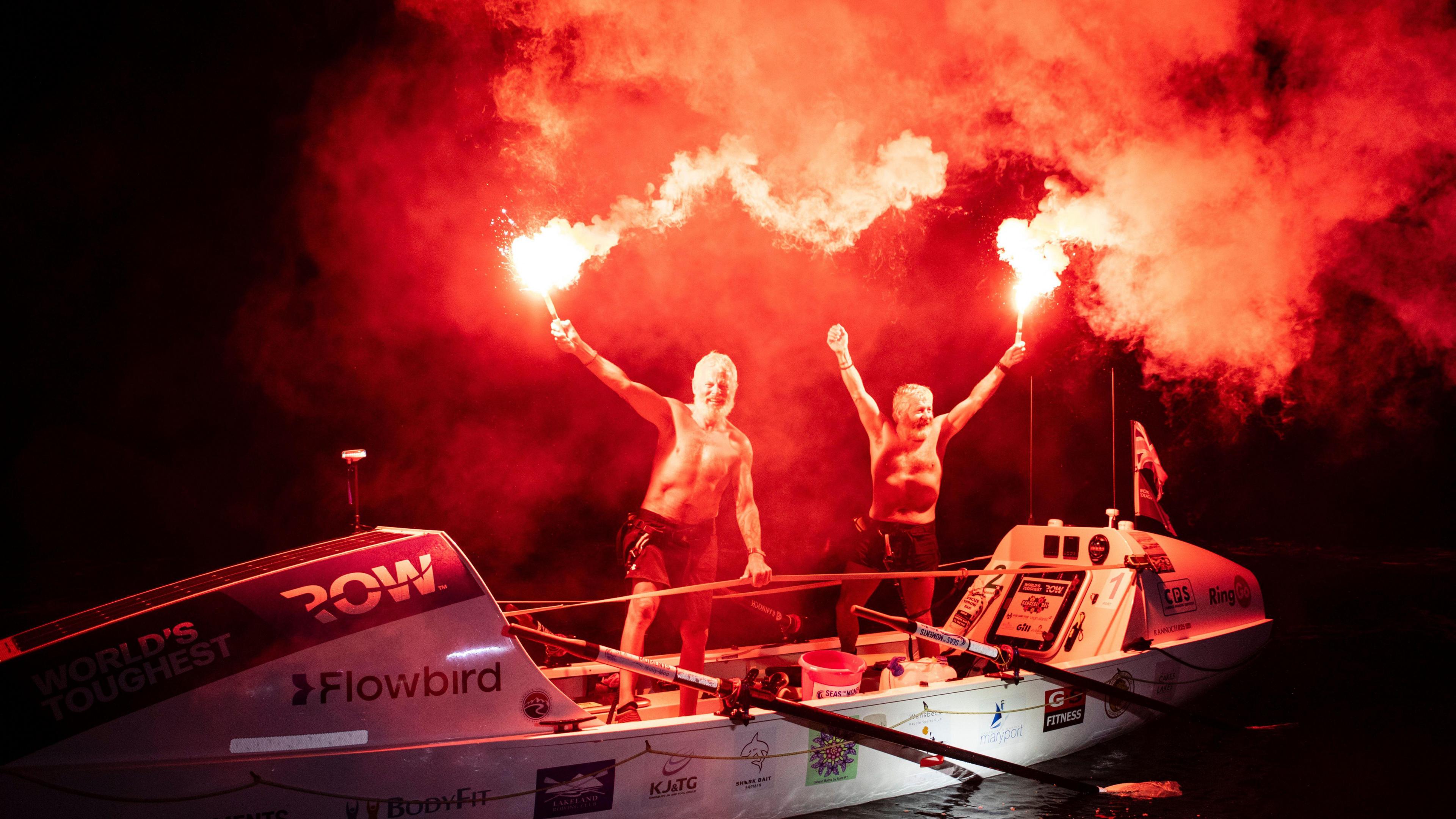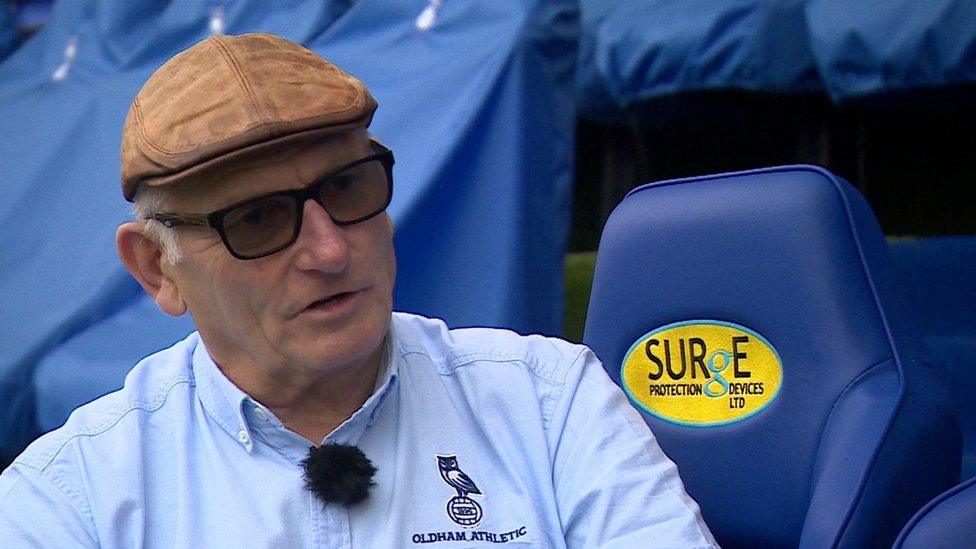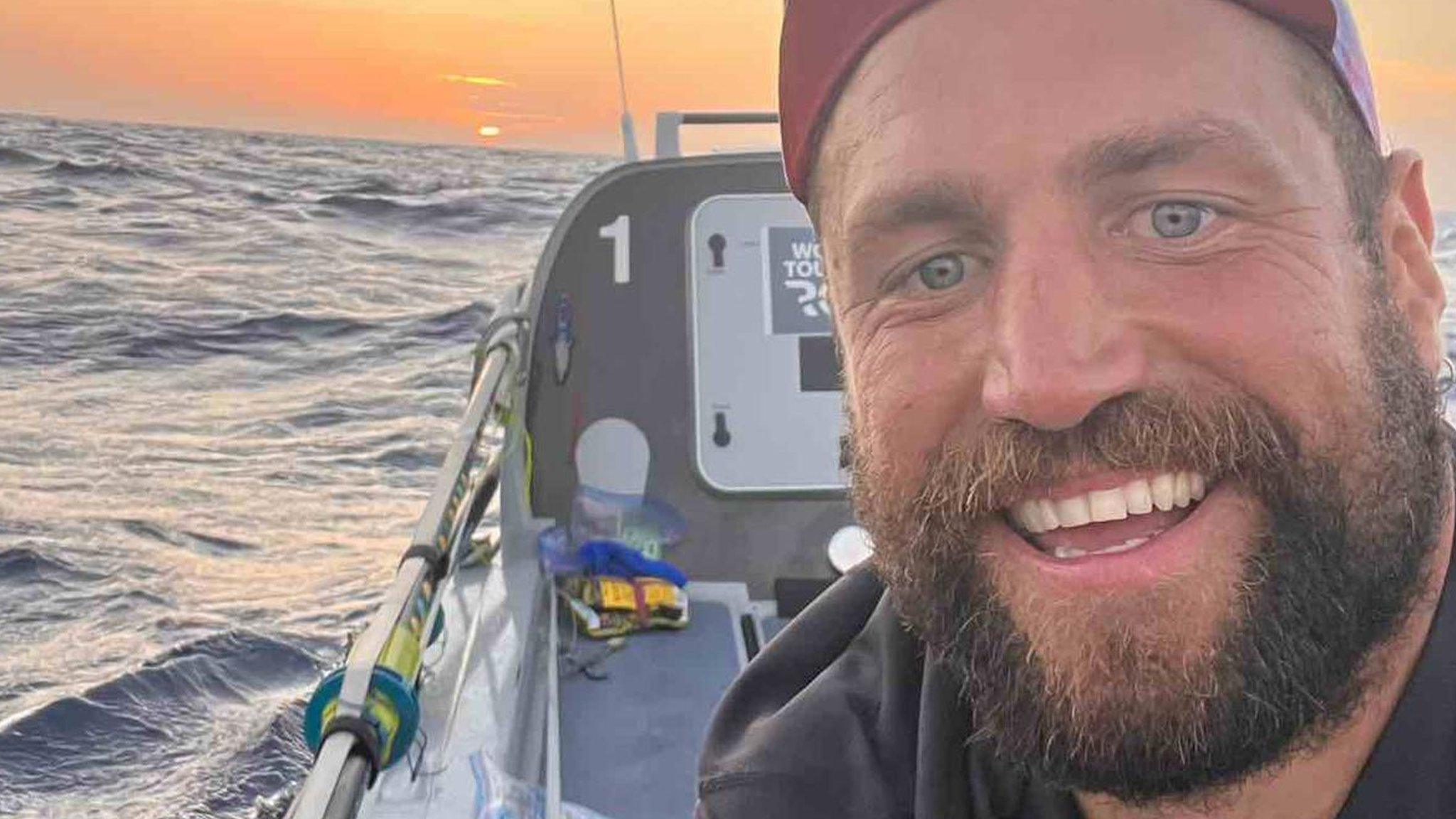Rowers taking on Atlantic in charity challenge

The Invictus Challenge team is set to row across the Atlantic
- Published
A team of rowers from Cornwall is set to take on one of the world's "toughest" challenges for charity.
James Brittain-Long, Paul Hayes, Luke Morgan and David Radford-Wilson have entered as the Invictus Challenge team for the World's Toughest Row, which is set to start on 12 December.
The row from the Canary Islands to Antigua sees crews crossing a 3,000 nautical mile (5,556km) course across the Atlantic ocean.
The Invictus Challenge team will be raising money for the Invictus Trust, a Cornish mental health charity that raises awareness of adolescent mental health.
The charity was set up in Truro in January 2011 by the family of Ben Cowburn, who took his own life at the age of 18 after a period of mental illness.
'Get down to business'
Mr Brittain-Long, who is the team's skipper, said the quartet wanted to raise money for the charity because of the work it does in Cornwall.
He said the team was looking forward to the challenge, despite the difficulties that might occur during the row.
"We are four old friends with deep ties to Cornwall and this is all about raising money to fund the brilliant work of the Invictus Trust, supporting the mental health of young people in Cornwall and connecting them with the help they need," he said.
"We took delivery of our boat at the start of June and the pub talk really is over as we get down to business and the hard graft of training on land and sea."
Waves 40ft high
The boat being used by the crew - which is 8.5m (27.9ft) long - has two small cabins for sleeping but no toilet, the Invictus Trust said.
The charity added the team would row in pairs in two-hour stints for about six or seven weeks.
It added waves on the Atlantic can top 40ft (12.19m) and the crew must carry all their own food and provisions, including having to make their own drinking water.
The charity said all crew members will be attached by a three-point safety harness when they are on deck.
Follow BBC Cornwall on X (formerly Twitter), external, Facebook, external and Instagram, external. Send your story ideas to spotlight@bbc.co.uk, external.
Related topics
Related internet links
- Published23 February 2024

- Published15 February 2024

- Published18 January 2024
